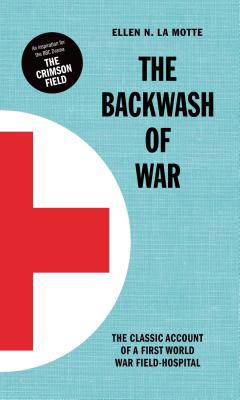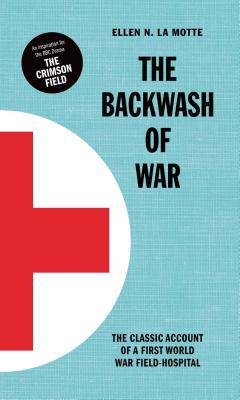
Bedankt voor het vertrouwen het afgelopen jaar! Om jou te bedanken bieden we GRATIS verzending (in België) aan op alles gedurende de hele maand januari.
- Afhalen na 1 uur in een winkel met voorraad
- In januari gratis thuislevering in België
- Ruim aanbod met 7 miljoen producten
Bedankt voor het vertrouwen het afgelopen jaar! Om jou te bedanken bieden we GRATIS verzending (in België) aan op alles gedurende de hele maand januari.
- Afhalen na 1 uur in een winkel met voorraad
- In januari gratis thuislevering in België
- Ruim aanbod met 7 miljoen producten
Zoeken
Omschrijving
War, superb as it is, is not necessarily a filtering process, by which men and nations may be purified. Well, there are many people to write you of the noble side, the heroic side, the exalted side. I must write you of what I have seen, the other side, the backwash. --Ellen La Motte, Volunteer Nurse, May 4, 1916 During World War One, Ellen La Motte became one of the first American war nurses to volunteer to go to Europe--and she witnessed its horrors firsthand as she worked near the Western front. Her controversial book, which the US banned in 1918, vividly and graphically describes the backwash of war: the dirty, smelly, lice- and disease-ridden bodies of the wounded French soldiers she cared for. They compose the "human wreckage" of highly organized and industrialized warfare. Sometimes cynical, sometimes poignant, La Motte's observations retain a freshness that makes for compelling reading. Arranged into 14 vignettes depicting typical events and scenes, The Backwash of War paints a picture of that conflict that, sadly, still resonates powerfully today.
Specificaties
Betrokkenen
- Auteur(s):
- Uitgeverij:
Inhoud
- Aantal bladzijden:
- 200
- Taal:
- Engels
Eigenschappen
- Productcode (EAN):
- 9781844862580
- Verschijningsdatum:
- 23/09/2014
- Uitvoering:
- Hardcover
- Formaat:
- Genaaid
- Afmetingen:
- 114 mm x 178 mm
- Gewicht:
- 226 g

Alleen bij Standaard Boekhandel
+ 25 punten op je klantenkaart van Standaard Boekhandel
Beoordelingen
We publiceren alleen reviews die voldoen aan de voorwaarden voor reviews. Bekijk onze voorwaarden voor reviews.









